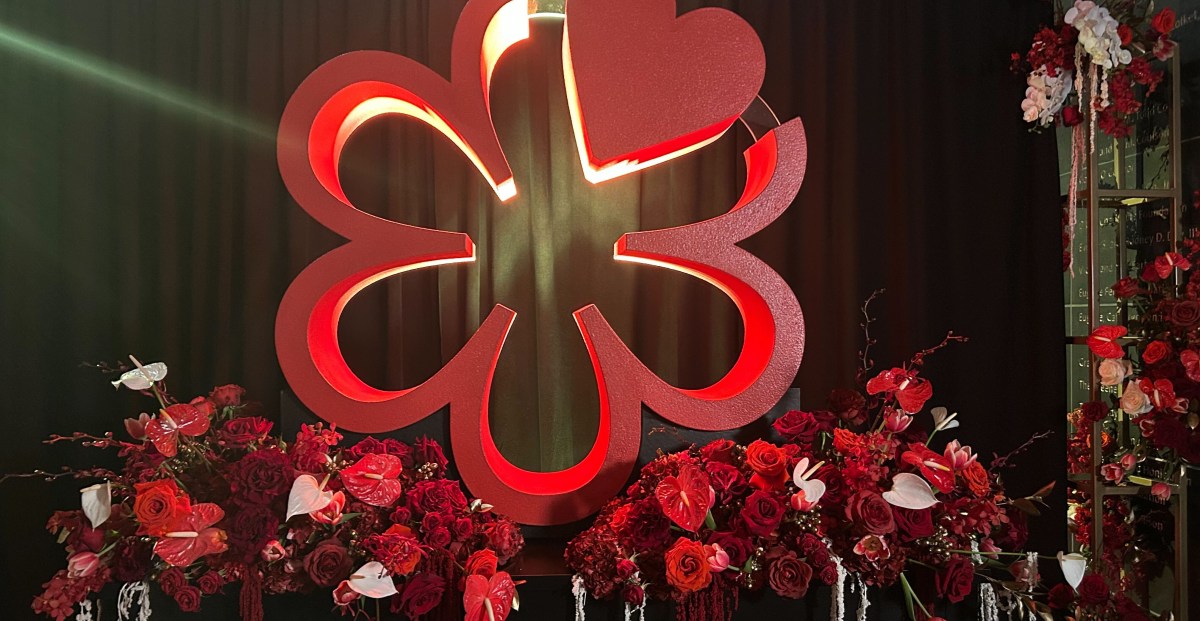The biggest New York news for the Northeast Michelin awards was that two-Michelin-starred Sushi Sho landed three Michelin stars. The omakase restaurant from Keiji Nakazawa comes from “one of the most influential sushi masters in the world,” former New York Times critic Pete Wells noted in his profile last year. Following that big-deal accolade, the Korean 16th-floor restaurant, Joo Oak, from Hand Hospitality, moved up from one to two stars. The restaurant from chef and owner Chang-ho Shin has a sibling spot in Seoul with the same name. The biggest news, however, was still the Northeast shakeup in which Michelin notified three restaurants with the three-star status that they’d be losing one. Expensive sushi temple Masa was one of them, along with Virginia’s Inn at Little Washington, and Grant Achatz’s Alinea.
The Tuesday night award ceremony was held at Philadelphia’s Kimmel Center; it was a fast-moving celebration that jammed more cities in one ceremony than ever. Just like last year, nominees attended from New York, D.C., and Chicago, along with this year’s newcomers from Philadelphia and Boston. The drop to two-star status for Chicago’s molecular Alinea, Virginia’s New American Inn at Little Washington, and New York sushi temple Masa stole a bit of the thunder for the latter two cities initially, but the excitement was palpable, especially in the host city of Philadelphia.
TV host Java Ingraham emceed the ceremony, which started with individual awards: Annie Shi of Lei, the Chinatown wine bar, received the Sommelier award, while the Young Chef Award went to India Doris of Markette. A handful of NY restaurants retained green stars for sustainability: Family Meal and sibling Blue Hill at Stone Barns, Dirt Candy, and One White Street.
Following Sushi Sho landing the coveted three-star status, the restaurants that maintained them include last year’s newcomer, Jungsik, the Korean namesake restaurant from Jungsik Yim that opened in 2011; Daniel Humm’s Eleven Madison Park (that now serves meat); Eric Ripert’s Le Bernardin; and Thomas Keller’s Per Se. The only other three-Michelin restaurant outside of the New York collection is Chicago’s Smyth.
The restaurants that kept their two Michelin stars include Aquavit, Aska, Atera, Atomix, Blue Hill, César, Chef’s Table at Brooklyn Fare, Gabriel Kreuther, Jean-Georges, Masa, The Modern, Odo, Saga, and Sushi Noz.
Three spots earned Michelin stars for the first time. They include Bridges in Chinatown, new kaiseki spot, Muku in Tribeca, and Downtown Huso by Buddha Lo. Restaurants that maintained their one-star status include Bar Miller, Cafe Boulud, Bōm, Casa Mono, Corima, Cote, Crown Shy, Daniel, Dirt Candy, Essential by Christophe, Estella, Family Meal, The Four Horsemen, Francie, Frevo, Gramercy Tavern, Icca, Jeju Noodle Bar, Joji, Jua, Kochi, Kosaka, L’Abeille, La Bastide by Andrea Calstier, Le Coucou, Le Pavillon, Mari, Meju, Noda, Noksu, Noz 17, Ouji Mi, Oxomoco, Restaurant Yuu, Rezdora, Semma, Shion 69 Leonard, Shmone, Shota, 63 Clinton, Nakazawa, Sushi Matsui, Torien, Torrisi, Tsukimi, Tuome, Yingtao, and Yoshino.
According to the guide, a one-star restaurant offers “high-quality cooking, worth a stop;” two stars provide “excellent cooking, worth a detour;” and three stars signify “exceptional cuisine, worth a special journey.” A Bib Gourmand reflects “good food at a moderate price.”
This is a developing story.
